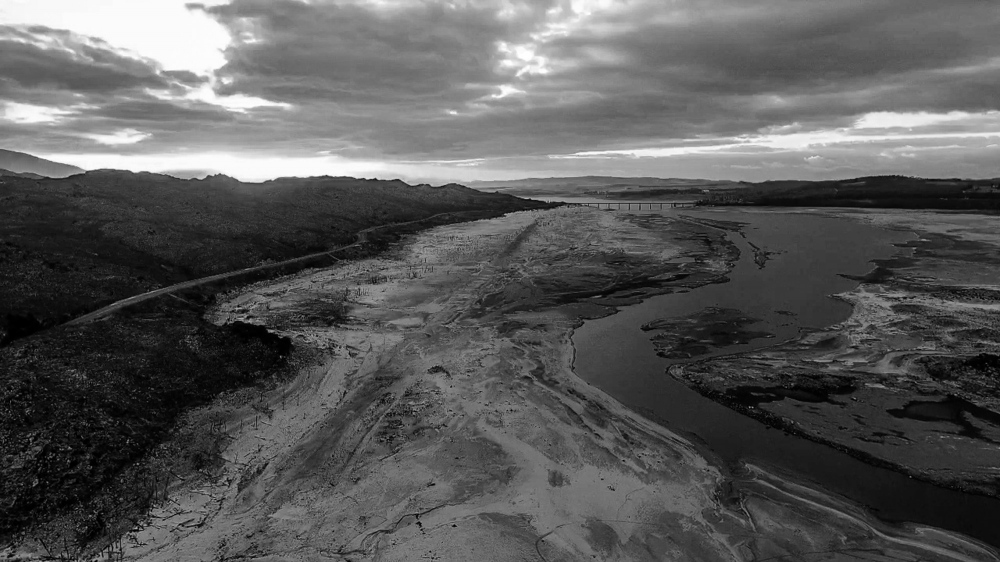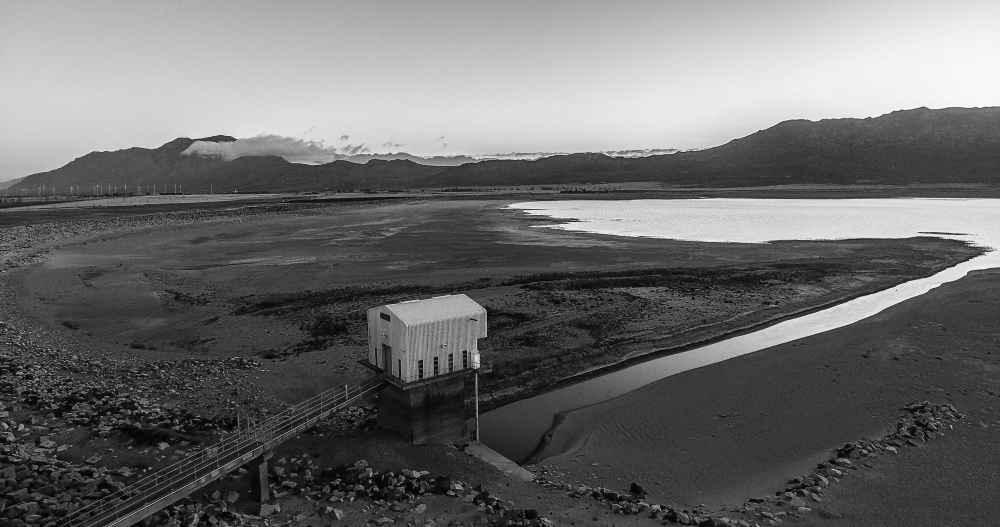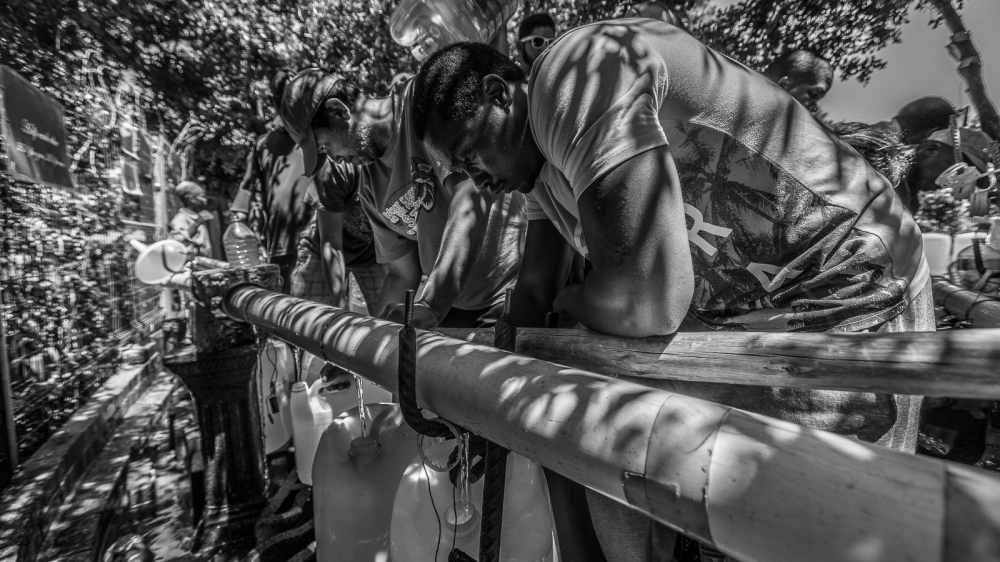Is South Africa giving us a preview of the future of water? Water diaries is a visual record of a photographer living in a country facing a water crisis. It's an emergency that affects every race, every income group, and every age. As residents counted down to the day when their taps would be turned off, Morgana Wingard captured their shared experience as we all asked the question, "Is South Africa a picture of our future?" Even though doomsday, coined "Day Zero", has been officially pushed back, the crisis is not over. She plans to continue to document the crisis throughout the region especially focusing on farming communities which will likely feel the greatest hit for months, if not years, to come.
Background
In early 2018 a severe multi-year drought and a growing population caused water supplies to get so dangerously low in Cape Town, South Africa that city officials had to warn inhabitants of "Day Zero""the day when the collective dam levels that supply water to the city would reach 13.5%. At this point they would have to turn off the taps to the four million inhabitants of the coastal metropolis and they would have to queue at 200 water points around the city to collect their daily allotment of water. On January 17, 2018 they announced that the city had less than three months of water left"reaching "Day Zero" by April 2018. Water restrictions were imposed to residents and businesses who risked fines if not adhered to. Resident changed their lifestyles and tried to cut water usage to 50 liters per day while businesses had their water usage cut by 60% or, in some cases, like car washes, entirely"affecting people's jobs and incomes. Then, seemingly out of the blue, on March 7, 2018 political leader, Mmusi Maimane, announced that Day Zero had been pushed out to 2019.
But, the crisis is not over. On February 13, 2018, the National Disaster Management Centre (NDMC) declared the ongoing drought in the Western Cape, Eastern Cape and Northern Cape Provinces a National Disaster.
In a local op-ed on March 13, 2018 Janse Rabie, AgriSA's head of natural resources wrote:
"Farmers in the south-western part of the country are currently experiencing one the greatest droughts in history, the consequences which, by itself, will be nearly devastating in the Western Cape as well as large parts of the Northern Cape and Eastern Cape. The impacts of the current drought will directly be felt throughout South Africa in the form of, amongst other things, food price inflation with respect to certain commodities, including fruit, vegetables, wheat and red meat. Indirectly, the effects of the loss of foreign revenue from exports and job-losses will be felt both regionally and throughout the country."
She added, "Nothing much has changed in the City. The prevailing drought continues unabated. None of the City's augmentation schemes are up and running yet. The City's consumption target of 450 Ml/day has never been met. There is no guarantee of the coming winter season's rainfall being sufficient to break the drought."
North of the city of Cape Town in one of the regions key agriculture areas, the main water reservoir, the Clanwilliam dam, that supplies irrigation to farms was turned off on March 13 when the dam reached 6%. The remaining water will be used only for households. Farms will not receive water again until the rains come which could be up to three months away. This means more lost crops, lost jobs, and in some cases lost farms as some will have to close business.
About the Photographer
Morgana is a social documentary photographer and cinematographer. She was living in Liberia, West Africa when the world's biggest Ebola outbreak exploded there in 2014. Looking forward at Cape Town's Day Zero she's eerily reminded of the months leading up to August 2014 when the first two Americans in Liberia contracted Ebola and the number of cases per day grew into the hundreds almost overnight. Everyone knew that Ebola was in the country for months, but there was a suspended belief. Some questioned if the disease was real. Some thought it was a deliberate conspiracy by the politicians. And, others hoped that it would stay under control and quietly disappear. And then, everyone's worst fears came true. Morgana documented the outbreak for another five months from Ebola burial teams to a dozen short films on Ebola survivors. Ironically, she moved to South Africa with her husband, a native of the country, because of the Ebola outbreak and now finds herself staring at another unprecedented moment in history once again in her backyard. She's recalling her experience and remembering lessons learned from her time in Liberia and applying them to this crisis in South Africa so that she can bear witness to this historic moment in hopes that we can demand global attention to prevent this crisis in other cities around the globe.
Morgana sees this as the first chapter in a bigger body of work documenting the water crisis across South Africa and around the world.





































